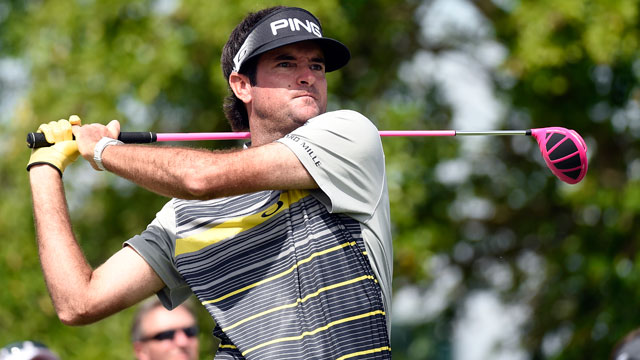NEWS
Strong finish at Doral often a springboard to a stellar season
By David J. Neal
Published on

DORAL, Fla. – Maybe it's the quality of the field, golf's version of A Great Day in Harlem.
Maybe it's the occasional nastiness of Trump National Doral's Blue Monster.
But if you want to find a golfer to bet on as a major winner, you'd do worse than checking out the top three at the annual PGA event in Doral, in its sixth year as the World Golf Championships-Cadillac Championship.
Bubba Watson won the Masters in 2012 and 2014 after finishing second each year at the Cadillac Championship. Rory McIlroy won his first major, the 2012 PGA, months after finishing behind Watson and Justin Rose at Doral. Two of the four golfers who tied for third at Doral in 2013, Adam Scott and Phil Mickelson, went on to win that year's Masters and British Open, respectively.
After Dustin Johnson's comeback to win last year's Cadillac Championship from as far back as a day of his tee shots, five strokes, he won the U.S. Open. Or, rather, Johnson had the U.S. Open won until he three-putted from 12 feet and finished tied for second behind current world No. 1 Jordan Spieth.
Of course, to talk the ultimate outlier, Tiger Woods rolled off his last six majors from 2005 to '08 as he won three consecutive years at Doral and finished second in 2008.
The Cadillac's lineup looks like that of a major with the qualifier winners subtracted. Of the top 50 in the Official World Golf Rankings, 47 will spend the weekend in Doral, the type of lineup you expect for a WGC event. The rankings determine the Thursday and Friday threesomes so the best of the best spend at least 36 holes with each other.
That means extra buzz and extra need to focus.
"There's going to be a lot of people out there," Jason Day said of his threesome with Spieth and McIlroy. "I've just got to try to get in my own little world out there."
Defending Masters champion Spieth, who recently spent a weekend at Augusta, gave the idea that the Cadillac Championship sits on the Masters side of a psychological line in the PGA Tour schedule.
"When we leave the West Coast and come over to Florida and then in Texas, that's when I think, OK, it's time to get ready for the Masters. That's just me," he said.
"The West Coast seems like its own kind of part of the schedule and it did last year, too. We came into here after playing [Augusta]. You get the excitement from just being there and playing a couple of rounds at Augusta National."
Watson's instinctive approach to the game – "I'm never changing my game for a certain tournament. I play 20 tournaments a year, so that means 20 different swing and thoughts I've got to figure out" – theoretically removes any event-to-event result correlation.
Then again, maybe not.
"The golf course is very difficult and, this year – I only played nine holes [Tuesday] – but it's playing softer, so it's playing a lot longer right now," Watson said.
"So it's about short game. Around a long golf course, it's all about short game and somehow trusting your 5-iron and your 6-iron, that it goes somewhat straight so that I can somewhat make pars around this golf course."
Winning the majors tends to come down to the short game (right, Johnson?).
"It's very good practice for respecting a golf course," Spieth said.
"[Caddy] Michael [Greller] told me, hey, the difference I saw in the recent few events versus your major championships last year – where I felt like I played my best golf of the year – was the respect you had for the golf course and not taking too many chances, let them just come to you, and then when you start to really get into a rhythm, then you can take a couple of chances.
"Here, if you try to take a couple of chances that you shouldn't, it's not just bogey that comes into play," he added. "You make sixes and sevens. I think I've even made an eight here on a par-4 before.
"Because of the trouble, short, long, left and right on almost every hole, you really have to pick your spots and make sure that you miss [the trouble]," he said. "You have to make sure that you're leaving yourself below the hole with simple pitches. Even if it's not firing at the hole.
"And that's what I'm talking about. That I need to start doing more of that as we play tougher golf courses and prepare for the majors."
This article was written by David J. Neal from The Miami Herald and was legally licensed through the NewsCred publisher network.
